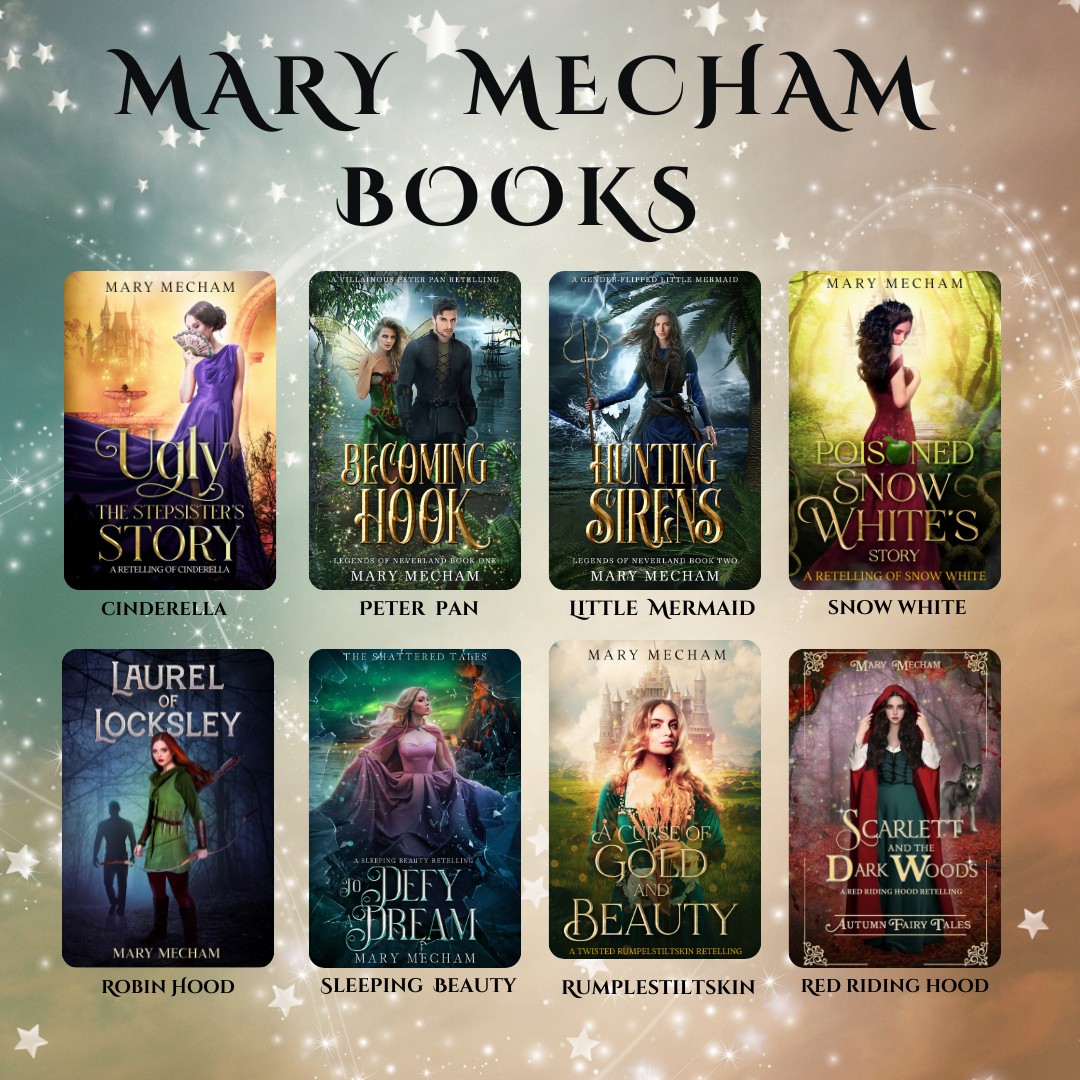Alright – so today we’ve got the honor of introducing you to Mary Mecham. We think you’ll enjoy our conversation, we’ve shared it below.
Mary , looking forward to hearing all of your stories today. Can you tell us the backstory behind how you came up with the idea?
I run the Disability Book Week organization, founded a non-profit, and write young adult novels, many of which are disability inclusive.
I first got into inclusive literature because I have a non-verbal daughter with a rare genetic syndrome, complex medical needs, and a Severe Intellectual Disability. While I was reading to her one evening, I thought it would be a fun idea to read a book with her that had a character with an intellectual disability so she could see herself represented in a book.
Out of the 2,186 books we own, I could only find ONE that had a good quality representation of a character with an intellectual disability (thanks, Berenstain Bears!), and only 16 that featured ANY form of disability, and 8 of those were in the same series (The Brotherband Chronicles)
I knew that the level of representation needed to change! I have a background as a disability advocate, so I started searching for more inclusive books to recommend to readers so people could see accurate and positive portrayals of individuals with disabilities and know that it isn’t a “lesser” life, it is just different, with its own unique set of challenges and benefits. I started Disability Book Week as an annual awareness event and people loved it.
But even then, I was still struggling to find many high quality young adult books that were disability inclusive. Most inclusive books are children’s books, and I wanted my favorite genre (young adult) to have more representation, so I began writing them myself!
The reception to both Disability Book Week and my own published books has been so heart-warming to see. Particularly with my book about intellectual disability, readers have been so eager to get to know this character through another’s eyes. Those who have a family member with IDD have expressed that they’ve never felt more seen or understood, and those unfamiliar said that this book helped them to understand IDD so much better and gave them the confidence to greet someone with an intellectual disability in real life rather than avoiding them.
My disability inclusive books:
Becoming Hook is my villain’s retelling of Peter Pan from Captain Hook’s point of view (disability portrayed: limb difference) in which it explores the origins of James Hook. Hint: he loses his hand saving Tinkerbell’s life!
My book Poisoned: A Disability Inclusive Snow White Retelling features a main character with a Severe Intellectual Disability and shows what it is really like living with someone with major developmental delays. There is beauty unlike anything else, as well as some challenges that others don’t expect.
Hunting Sirens is a gender-swapped Little Mermaid retelling in which the main character Treva is profoundly Deaf, so cannot hear the sirens’ calls that have killed so many of her people, so she begins hunting them. This is an especially fun retelling because Deafness is not at all a disability and is far more beneficial than being hearing.
A Curse of Gold and Beauty is the free novella I give away to everyone on my newsletter list and shows what it would have been like if Rumpelstiltskin had Rheumatoid Arthritis and fell in love with the miller’s daughter.
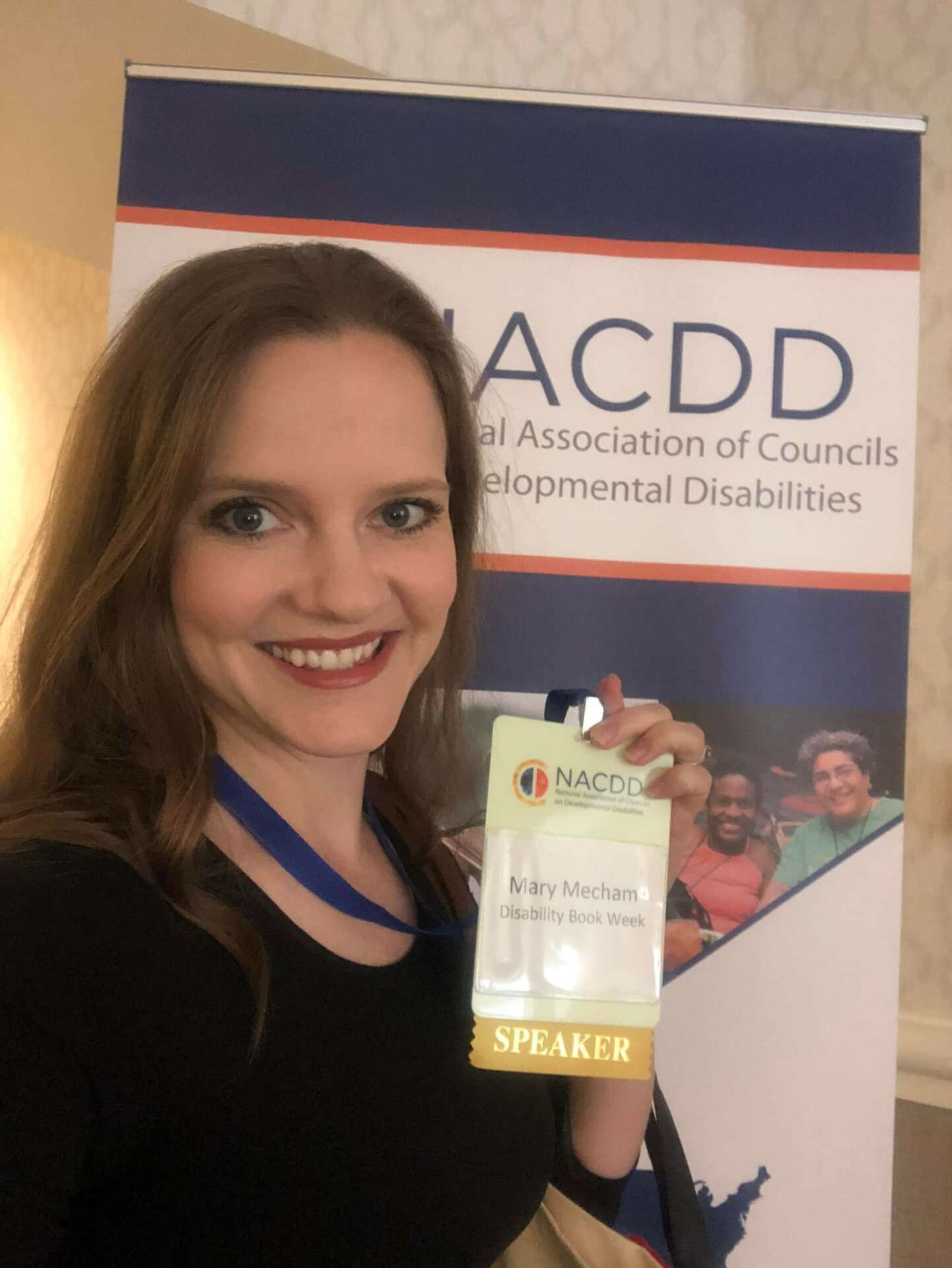
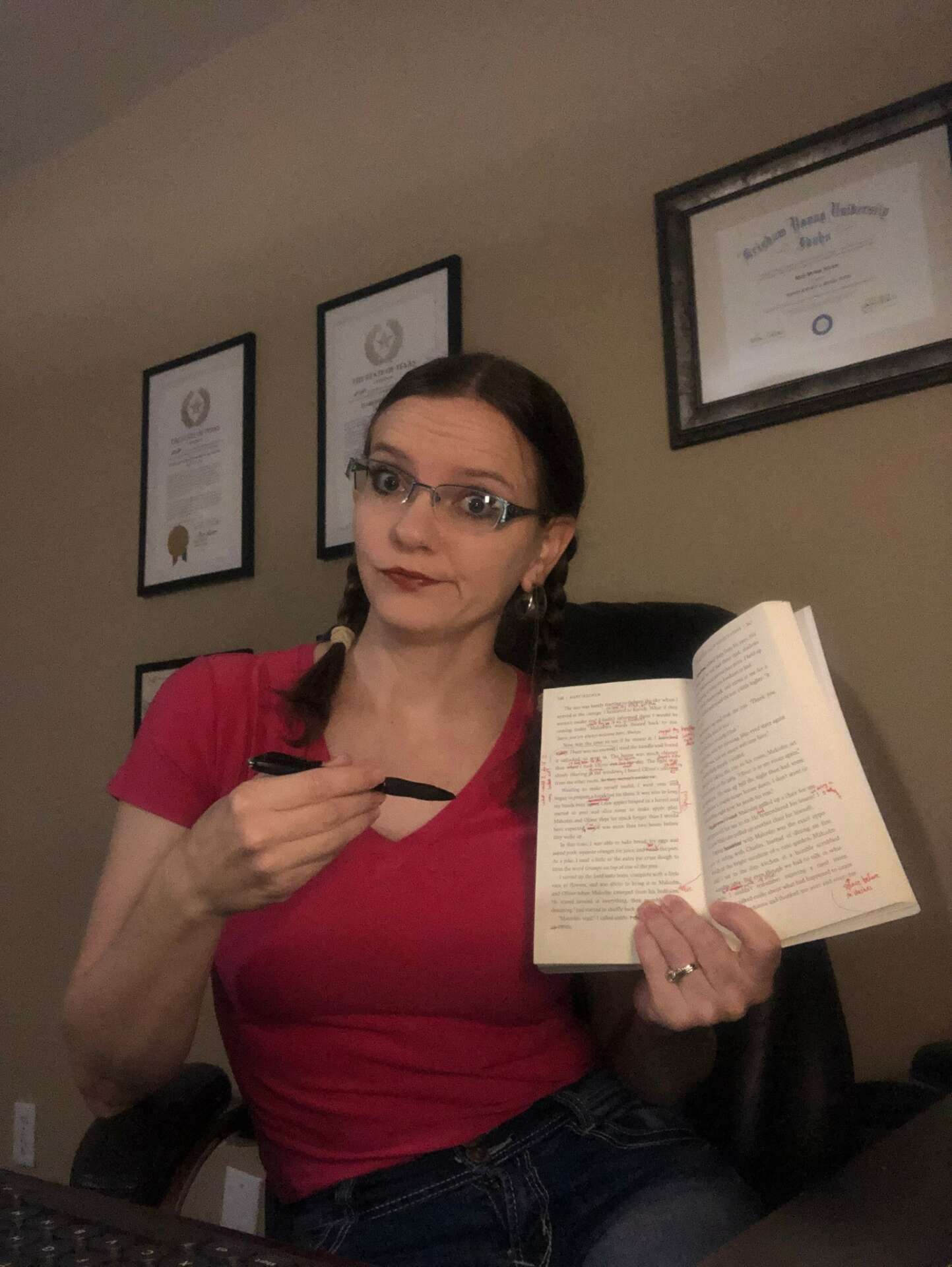
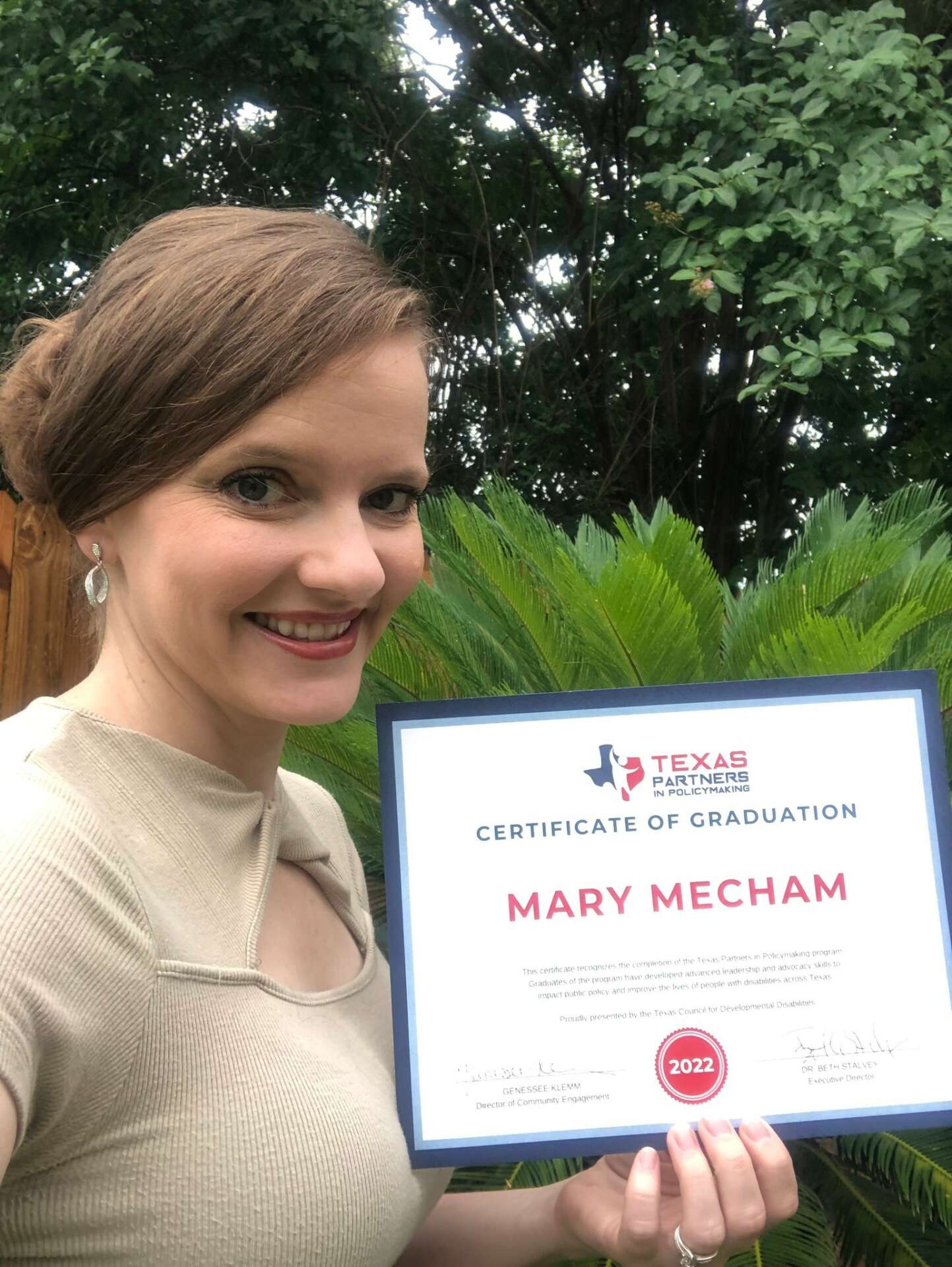
Mary , love having you share your insights with us. Before we ask you more questions, maybe you can take a moment to introduce yourself to our readers who might have missed our earlier conversations?
I call myself a disability advocate by day, author by night, mom 24/7.
I’ve been a disability advocate and speaker for almost 12 years, and an author for 3 years, and use my experience working with individuals in the disability community to bring more awareness and inclusion to literature. I do this by working with my non-profit and our annual event Disability Book Week, and by writing my own books that often (but not always) feature a character with a disability.
I know that many people don’t have extensive experience with disabilities, and I want to use my work as a way to help readers understand disabilities better through accurate and positive portrayals. Oftentimes, I’ve found that books will cast those with disabilities in a negative manner, sometimes unintentionally.
For example, fairy tales will often dole out disabilities as “curses” or “punishments” to the characters, then magically cure the disability when the character proves their worth. Think of the prince in Rapunzel who was made blind then magically cured later on. Though this does not explicitly detail how disabilities are bad, it sends the message of “being able-bodied/ being non-disabled is superior,” and I never want readers with disabilities to feel like they have a “second-class” life.
My goal in my work is to make sure that everyone can find themselves represented in literature somehow.
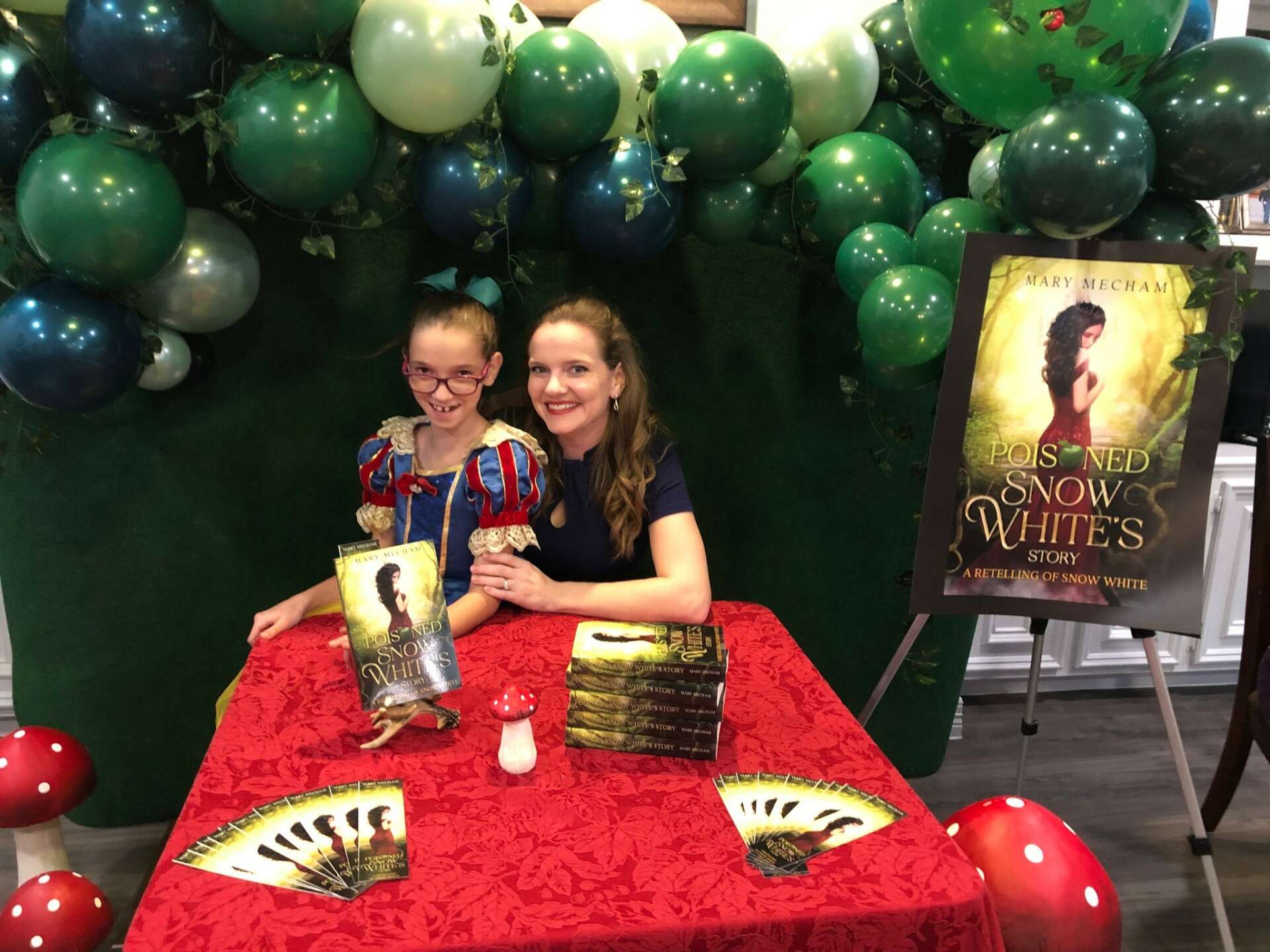
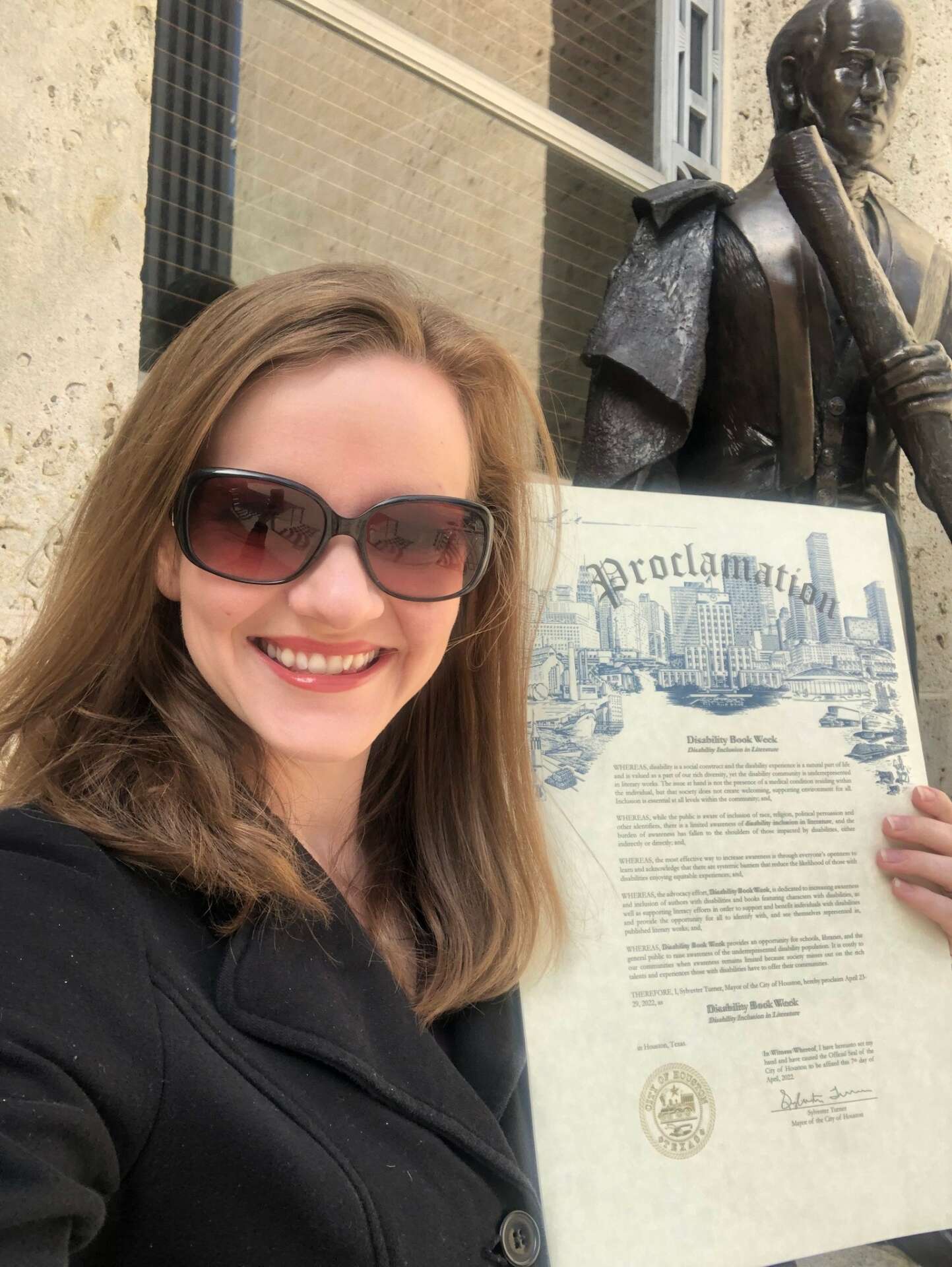
What do you find most rewarding about being a creative?
One of the most rewarding aspect of being an author is having a complete, physical book at the end of the process of writing and publishing. A lot of my life as a mother and as an advocate and speaker deals with the intangible–the dishes and laundry never stay done, other than an occasional picture presenting at a conference or proclamation/ certificate, I don’t have anything to point to as a disability advocate to “prove” what I’ve done. But as an author, I have a stack of books that I can look at on tough days and remind myself that I CREATED that from start to finish.
But beyond that, one of the things I enjoy most in writing young adult novels is weaving life lessons about things I’ve learned that I wish I knew when I was younger and incorporating them into fun stories. For example, my retelling of Cinderella from the stepsister’s point of view deals with loving yourself and body positivity. My retelling of Snow White not only deals with the value of each person regardless of ability level, but also points out red flags in abusive relationships (why would a prince want to marry a princess he only met once who was stripped of her title and banished?)
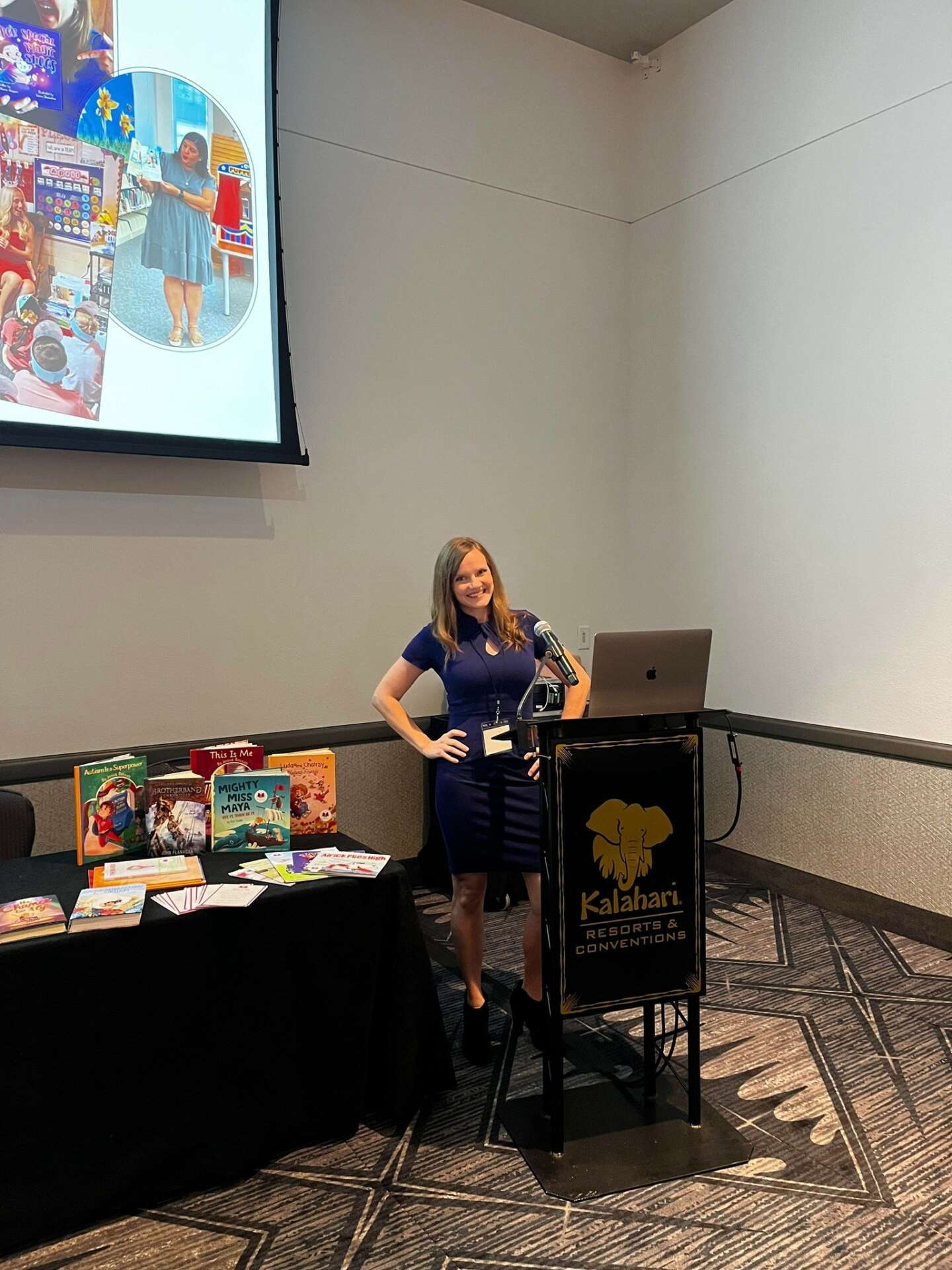
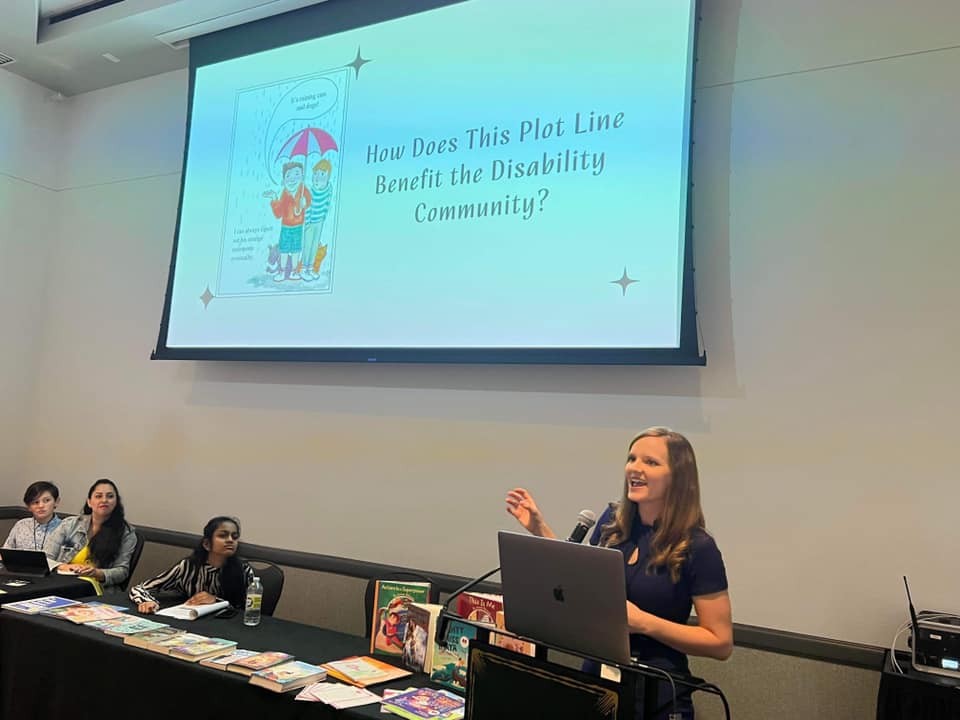
Are there any resources you wish you knew about earlier in your creative journey?
Oh my goodness, I wish I’d known about the process of publishing early on. When I first started. I assumed that someone would simply write a book, then publish and people buy it. Sounds easy, right?
WOW was I naive! There are so many hidden steps that readers never see, from the million rounds of editing to the website development, filing for copyrights, the accounting, the newsletter set up and social media engagement… The editing was what really got me; I was shocked when I realized that editing tends to take months after the book is initially written before I can even get close to publishing, and then there is all the marketing that still needs done after that.
But I also wish I knew about how validating it is to connect with other authors in my same genre early on. They have become some of my closest friends and I stay so motivated by chatting regularly with them. We’ve even done collaborative writing projects that are so much fun and I’m enjoying immensely.
Contact Info:
- Website: https://marymecham.com/
- Instagram: https://www.instagram.com/marymecham_author/
- Facebook: https://www.facebook.com/marymechamauthor
- Linkedin: https://www.linkedin.com/in/mary-mecham-693539231/
- Other: TikTok: https://www.tiktok.com/@marymecham_author?lang=en


